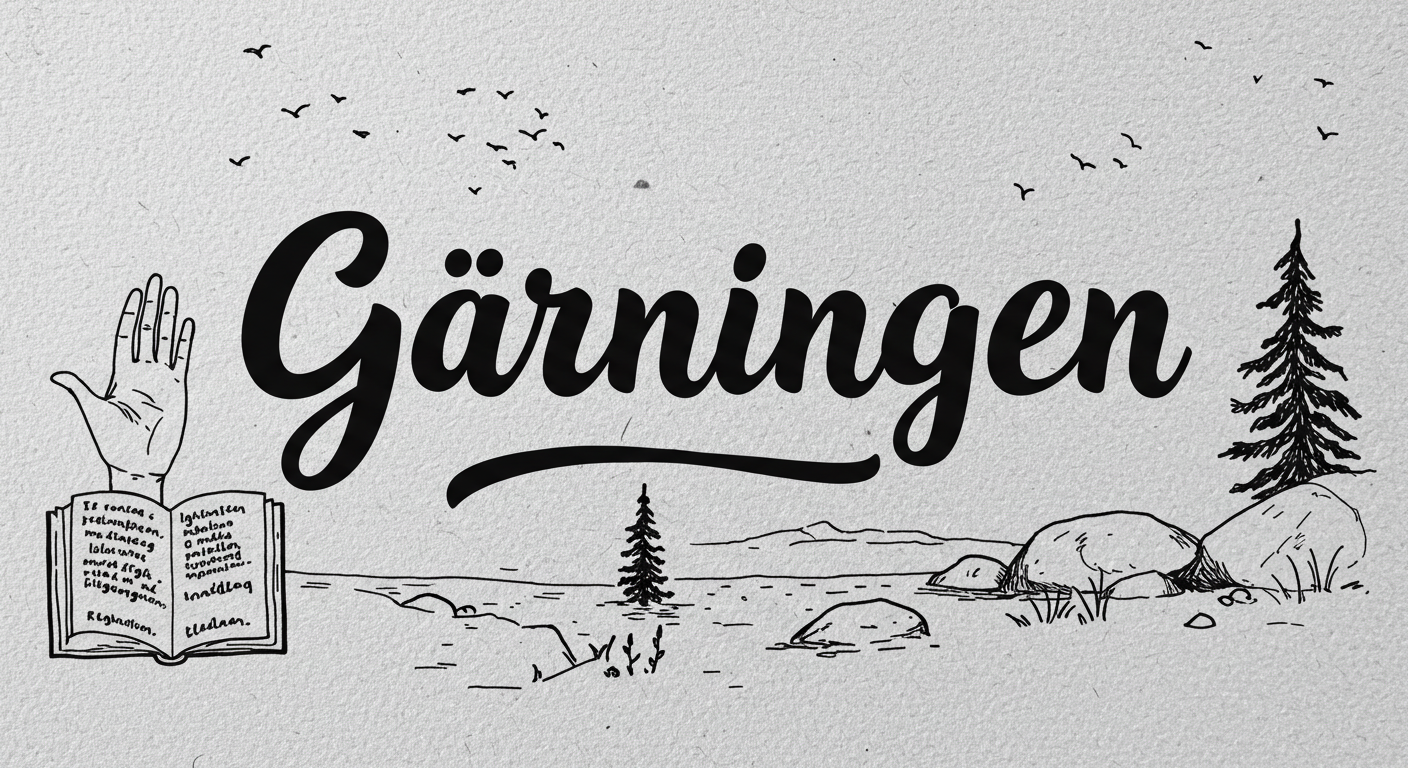Gärningen: Exploring the Deeper Meaning Behind This Powerful Swedish Term
The Swedish word gärningen may appear simple, but its meaning runs deep. Translated into English as “the deed” or “the act,” it carries significant emotional and cultural weight in Swedish conversation, especially when referring to serious events such as crimes or heroic acts.
From its legal implications to everyday expressions, gärningen holds a place of prominence in Sweden’s language and culture. In this article, we’ll dive into the origin, uses, and broader significance of gärningen, and why understanding it offers valuable insight into Swedish thought and society.
The Etymology and Structure of Gärningen
Origin and Linguistic Roots
The word gärningen is derived from the root noun “gärning”, meaning deed, task, or action. The suffix “-en” transforms it into the definite form, making it “the deed” or “the act”.
Historically, gärning comes from Old Norse and shares linguistic ties with the German word “Tat”, and the English “deed”, all of which reflect intentional action.
Grammatical Use
In grammatical terms, gärningen is a feminine noun used in its definite singular form. It is commonly employed in contexts that demand clarity or reference to a specific event or act, especially in formal writing or speech.
Gärningen in Swedish Law and Justice
Common Legal Contexts
One of the most frequent uses of gärningen is within Swedish legal terminology. In this setting, it typically refers to the specific act being evaluated or prosecuted—usually a criminal offense.
Examples include:
-
“Han greps i samband med gärningen.”
(He was arrested in connection with the act.) -
“Bevisen kopplar honom direkt till gärningen.”
(The evidence links him directly to the deed.)
In court, gärningen refers not to general behavior, but to a concrete and definable act, whether it’s theft, assault, or another punishable offense.
Moral and Ethical Weight
Beyond its technical use, gärningen often implies moral responsibility. It’s not just about what happened—it’s about who did it, and why.
Cultural Interpretations of Gärningen
In Media and News
Swedish news outlets frequently use gärningen in crime reporting. Phrases like “platsen för gärningen” (the scene of the act) are standard when covering criminal investigations.
This repeated usage helps reinforce gärningen as a word that points to gravity, seriousness, and consequence.
In Storytelling and Literature
In Swedish novels, especially crime and psychological thrillers, might represent a pivotal event. Authors use it to emphasize the weight of human decisions, especially in plots that explore justice, guilt, or redemption.
Gärningen in Everyday Conversations
Although formal, occasionally appears in everyday speech—particularly when referring to noteworthy actions, either good or bad.
Examples:
-
“Han belönades för gärningen som räddade livet på barnet.”
(He was rewarded for the act that saved the child’s life.) -
“Ingen erkände gärningen.”
(No one admitted to the deed.)
In casual contexts, it tends to highlight events with moral, emotional, or social impact.
How Gärningen Differs From Similar Words
Swedish has multiple words for “act” or “action,” but gärningen is more specific in tone and intent.
| Word | Meaning | Context |
|---|---|---|
| Gärningen | The deed/act (specific, often serious) | Legal, moral, or significant events |
| Handlingen | The action or storyline | Films, books, or general description |
| Åtgärden | The measure/intervention | Policies or official procedures |
Choosing gärningen implies that something meaningful—often irreversible—has taken place.
Why Language Learners Should Understand Gärningen
For non-native speakers, learning how and when to use can provide:
-
Deeper fluency in both formal and emotional communication
-
Better comprehension of Swedish media, especially news and crime content
-
More cultural insight, particularly regarding how Swedes view responsibility and justice
Correct usage shows not just language proficiency, but cultural understanding as well.
Examples of Gärningen in Real Sentences
-
“Polisen anlände strax efter gärningen hade begåtts.”
(The police arrived shortly after the act had been committed.) -
“Han vägrade kommentera gärningen under rättegången.”
(He refused to comment on the deed during the trial.) -
“Gärningen hyllades som ett exempel på osjälviskhet.”
(The act was praised as an example of selflessness.)
These real-world examples help illustrate just how nuanced and powerful can be in both tone and meaning.
The Symbolic Importance of Gärningen in Society
In Swedish culture, gärningen reflects not just an act, but often an internal reckoning. It is frequently tied to themes like justice, regret, courage, or honor.
This is why it resonates strongly in political speeches, criminal proceedings, and award ceremonies. It suggests intentional action with consequences—an idea central to many Scandinavian values such as accountability and transparency.
Conclusion: Why Gärningen Is More Than Just a Word
To fully grasp the meaning ofis to understand an important part of Swedish language and culture. Whether appearing in courtrooms, newspapers, or novels,gnifies more than just an event—it represents responsibility, impact, and often, the turning point in a story or legal matter.
For language learners, writers, and cultural analysts, is a gateway to more expressive and precise communication in Swedish. And for locals, it remains one of the most potent words used to define serious moments in life—be they heroic, tragic, or transformative.







